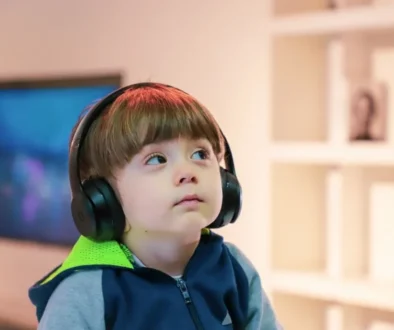How to Diagnose High Functioning Autism
Did you know that compared to peers with other disabilities, young adults with autism are less likely to live independently? However, with the right supports in place, the potential is there. But what’s the difference between someone with autism who can live independently versus someone who can’t?
Kids diagnosed with high-functioning autism are more likely to be able to live independently. What is high-functioning autism? And how do you diagnose it?
Keep reading to learn more about autism in children.
What Is High-Functioning Autism?
Autism spectrum disorder, or ASD, is a developmental disability. Autism can cause significant communication, behavioral, and social challenges. People with ASD often have difficulty with the following:
- Social interaction
- Repetitive behaviors
- Impaired language skills
ASD occurs in all ethnic, racial, and socioeconomic groups. ASD affects an estimated 1 in 44 children in the United States.
High-functioning autism (HFA) is a term used to describe people with ASD who have mild or moderate symptoms. For a long time, only people with severe symptoms were recognized as having autism.
This began to change in the 1990s. Milder forms of autism were recognized at this time. With this, the diagnosis of Aspergers, which includes similar symptoms, became prevalent.
However, it’s important to note that high-functioning autism isn’t a diagnosis. Instead, it’s a term used to describe individuals with autism who have less severe symptoms.
For example, people with HFA typically have higher IQs than those with other forms of ASD and are able to attend mainstream schools. They may also be able to live independently as adults.
However, people with HFA still face challenges. They may have difficulty understanding sarcasm or jokes, and they may take things too literally.
They may also struggle with social interactions, as they may not be able to read nonverbal cues such as body language or facial expressions. As a result, they may have trouble making friends or sustaining relationships.
Symptoms of High-Functioning Autism
There are a number of symptoms that can indicate high-functioning autism. However, it’s important to remember that everyone experiences symptoms differently. Some common symptoms of autism include:
Emotional Sensitivity
Individuals with HFA can have very sensitive emotions. They may feel frustrated, anxious, or angry more easily than people who do not experience autism.
Fixation on Specific Interests
Individuals with HFA may become fixated on one or two specific interests. This can look like a person who only talks about dinosaurs or video games, for example.
Repetitive Behaviors
Repetitive behaviors are another sign of HFA. For example, hand flapping, spinning, or rocking. These behaviors can be a way to self-soothe or cope with anxiety.
Social Challenges
Difficulty socializing with others is a hallmark sign of HFA. They may not pick up on social cues, such as body language, and they may have trouble starting or maintaining conversations.
Linguistic Oddities
Kids with HFA might have difficulty understanding or using language in the same way that neurotypical people do. They may use words literally or have trouble understanding idioms.
Sensory Sensitivities
Sensitivity to certain sounds, textures, smells, or tastes may also occur. They may also have a hard time tolerating bright lights or loud noises.
How Is High-Functioning Autism Diagnosed?
The diagnosis of autism can be difficult, as there is no one specific test or set of criteria that can be used to diagnose the condition definitively. However, there are a number of ways in which clinicians and researchers can assess whether an individual may be on the autism spectrum.
One common method of diagnosing autism is through the use of behavioral assessments. These tests look at an individual’s behavior and social interaction patterns in order to identify any red flags for autism.
Many times, these assessments are conducted by trained professionals. This can include psychologists or psychiatrists.
Another way to diagnose autism is through the use of cognitive testing. This type of testing looks at an individual’s ability to process information and solve problems. It can help to identify any areas of difficulty that an individual may have in cognition or executive functioning.
Finally, many individuals with autism also have difficulty with communication. This may manifest itself in difficulty with the following:
- Spoken language
- Repetitive or unusual speech patterns
- Trouble understanding nonverbal cues such as body language or facial expressions
If an individual has difficulties in any of these areas, it may be indicative of an underlying diagnosis of autism.
Treatments for High-Functioning Autism
There is no one-size-fits-all approach to treating autism, but there are some general principles that can guide treatment. The most important principle is to focus on the individual’s strengths and abilities and to build upon them.
Treatment should also be tailored to meet the individual’s needs and preferences. Some people with high-functioning autism may benefit from medication, while others may not. Behavioral therapies, such as applied behavior analysis (ABA), can be helpful for some people with high-functioning autism. In fact, research shows that early intervention with ABA can be extremely effective.
Other approaches, such as occupational therapy or social skills training, may also be helpful.
The goal of treatment is to help the individual with high-functioning autism lead a happy and fulfilling life. With the right support in place, many people with high-functioning autism can live independently and enjoy successful careers and meaningful relationships.
Get the Support Your Family Needs
If you think your child may have high-functioning autism, it is important to get them diagnosed as soon as possible. The earlier they are diagnosed, the sooner they can start getting the help and support they need.
Developmental Pediatrics in Texas is here to support you. Schedule an assessment today.



